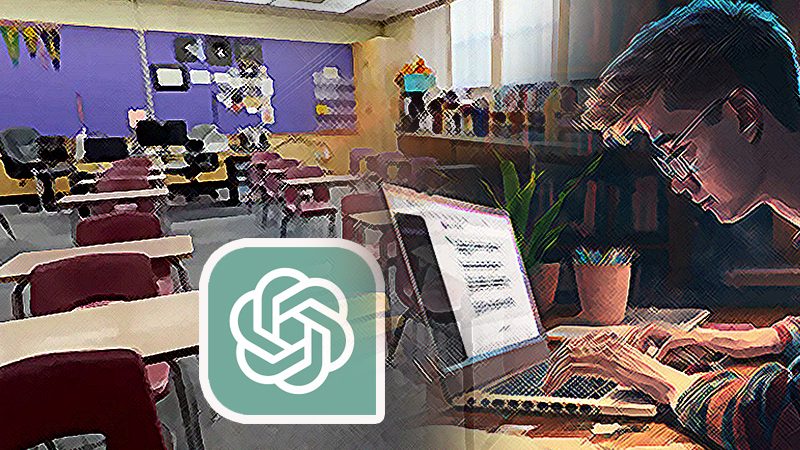Concerns about the future of education are raised by ChatGPT: How will it affect the “integrity” of academic institutions?

Since the November 2022 launch of the artificial intelligence tool ChatGPT, the new technology has demonstrated the influence and power that AI can have on our daily lives.
The owner of ChatGPT, Open AI CEO Sam Altman, acknowledged earlier this month that he was “a little bit scared” of the potent technology his company is creating. A lot of current jobs will be eliminated by artificial intelligence, according to Altman, but the technology will ultimately benefit people because it has the potential to revolutionise fields like education.
Education will need to change…. He said !
Education will need to change, Altman predicted. The way we taught maths and what we tested students on, however, completely changed when we got the calculator, as it has happened many other times with technology.
Former Google consultant Joe Toscano asserted to Fox News Digital that he thinks ChatGPT will have a “dramatic impact” on education.
Wikipedia “became the thing that all of the students sought out, trusted, and attempted. When I was younger, Wikipedia presented a challenge for educators who only wanted to draw from reliable sources, such as books “Toscano said.
Toscano added that one benefit of ChatGPT is that it will improve people’s capacity for learning by locating information, curating it into a narrative format, and enabling people to learn about things more quickly and in various ways.
Toscano continued by expressing his worry that students would use the tool to write their papers rather than doing so themselves.
Read | What Is WWE Wrestlemania 39? What Are The 10 Big Expected Fights?
What does that mean for our grading procedures? What does that mean for the credibility of our educational institutions? What is learning these days as opposed to regurgitation? he pondered. I believe there will be significant ramifications, and I doubt that we can currently foresee where they will lead. Another expert cautioned Fox News Digital that students would use ChatGPT as a “shortcut.”
According to award-winning author and educational thought leader Carew Papritz, “So what is the purpose of education at that point? I mean, it’s almost like it’s similar to exercise: If you don’t have to do it, which is work, why go do it in the first place?”
Professors recently met to discuss distinguishing papers produced by humans and those produced by artificial intelligence, according to Papritz. Few professors, according to him, could tell when a paper was written by artificial intelligence.
The main purpose of the artificial intelligence chatbot ChatGPT is to mimic human speech. ChatGPT has been used by users from all over the world for various tasks, including email writing, computer program debugging, homework help, game playing, writing stories and song lyrics, and much more.
On ChatGPT, large corporations are divided. While some companies, like Netflix, have adopted the technology to enhance the user experience, others have outright forbidden ChatGPT in their ecosystems due to a lack of information and a degree of uncertainty.
ChatGPT has the power to eliminate entire industries. For instance, a business that developed artificial intelligence to read and evaluate legal documents might use ChatGPT, which can do the same tasks for a much lower price.
GPT3 uses over 175 billion statistical connections and is trained on two-thirds of the internet, including Wikipedia and many books. GPT3 is the version of ChatGPT that helped OpenAI reach new heights of popularity. The company continuously improves and broadens the data set used to train the tool.
Because technology will eventually be used in K–12 education, Holly Terei, the national director of the Teacher Coalition for No Left Turn in Education, expressed concern for her children’s educational future.
Terei stated, “Over the summer, I recently attended the Learning 2025 Superintendents Summit. It only makes sense that K through 12 education is attempting to prepare students for that type of environment given that this is already occurring in the collegiate space and is visible on college campuses and in our universities. It will increase skepticism towards professionals in the workforce, Terei continued.
Imagine completing your entire college career using this kind of technology, she said, and then entering the workforce as a solicitor or a doctor, for example. The question is, “Did you actually go to university to master this particular subject and which you can now perform, without technology, or did you spend that time in university growing and excelling in how to utilize this technology to the best of your abilities and for your self-gains?”




